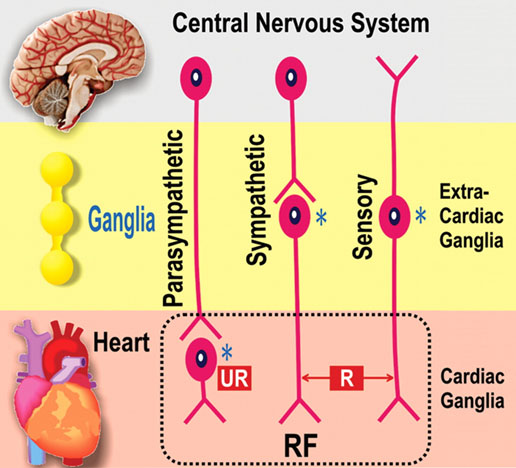Oxford Academic
Catheter ablation of severe neurally meditated reflex (neurocardiogenic or vasovagal) syncope: cardioneuroablation long-term results




Neurally meditated reflex syncope (NMS), also known as neurocardiogenic or vasovagal syncope, is the most frequent aetiology of syncope in young people without apparent cardiac or neurological pathology. Cardioinhibition with asystole and/or transitory atrio-ventricular (AV) block induced by a massive vagal reflex is commonly observed in severe cases. These manifestations, sometimes dramatic, may be recurrent and refractory to therapy, featuring the ‘severe neurally meditated reflex (vasovagal syncope)’. Treatment with drugs and pacemakers, even with specific algorithms, have not shown good results. Likewise, ‘tilt-training’ showed poor results with low therapy adherence and failure in reduction of syncopes, as reported by recent randomized study.
Cardioneuroablation (CNA) is a new technique for management of patients with dominantly adverse parasympathetic autonomic influence. The therapy is based on endocardial radiofrequency (RF) catheter ablation of the cardiac vagal nervous system aiming permanent attenuation or elimination of the cardioinhibitory reflex.
Catheter ablation of severe neurally meditated reflex (neurocardiogenic or vasovagal) syncope: cardioneuroablation long-term results
“Cardioneuroablation” – new treatment for neurocardiogenic syncope, functional AV block and sinus dysfunction using catheter RF-ablation
Syncopal High‐Degree AV Block Treated with Catheter RF Ablation without Pacemaker Implantation